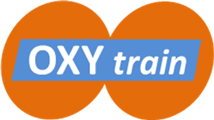Scientific advisory board (SAB)
The Scientific advisory board has as major function to comment critically on the research and training activities of the ETN, and suggest new directions where appropriate. The SAB is is formed by 3 external scientist.
 Dr. Riccardo Motterle is the head of the Biotechnology Development at F.I.S. Fabbrica Italiana Sintetici (Vicenza). He received is Laurea in Chemistry in 1995 at the University of Padova and joined F.I.S. in 1996. During the first ten years his research activity he dealt with scouting, developing and scaling-up syntheses of API using ‘standard’ organic chemistry. From 2006 on he had the opportunity to investigate the potential of biocatalysis in API production starting a new field in FIS. His current studies focus on the re-design of API and intermediated synthesis to allow an extensive use of the biocatalysis. He is also involved in all the issues related to the use and stabilization of enzymes in industrial implementation. These works were developed in collaboration with University of Padova where Dr. Motterle is responsible for a PhD student and a Postdoc on Industrial Biotechnology.
Dr. Riccardo Motterle is the head of the Biotechnology Development at F.I.S. Fabbrica Italiana Sintetici (Vicenza). He received is Laurea in Chemistry in 1995 at the University of Padova and joined F.I.S. in 1996. During the first ten years his research activity he dealt with scouting, developing and scaling-up syntheses of API using ‘standard’ organic chemistry. From 2006 on he had the opportunity to investigate the potential of biocatalysis in API production starting a new field in FIS. His current studies focus on the re-design of API and intermediated synthesis to allow an extensive use of the biocatalysis. He is also involved in all the issues related to the use and stabilization of enzymes in industrial implementation. These works were developed in collaboration with University of Padova where Dr. Motterle is responsible for a PhD student and a Postdoc on Industrial Biotechnology.
 Prof. Dr. Willem van Berkel was trained as a biochemist. In his research group Enzymes@Work at Wageningen University & Research focuses on the discovery, mechanisms, and state-of-the-art engineering of (redox) enzymes for applications in food, health, technology and environment. Mechanistic and structural insights are combined with catalytic applications at laboratory scale. A main strategy involves protein engineering directed at understanding and improving the capabilities of oxidative biocatalysts. In addition to his scholarly work, he has made important contributions to the community through his service on the Netherlands Organization for Scientific Research (NWO), the Dutch Society of Biochemistry and Molecular Biology (NVBMB), and the Federation of the European Biochemical Society (FEBS). He is also a dedicated teacher, mentoring graduate students and postdoctoral associates while teaching biological chemistry, enzymology, applied biocatalysis and chemical biology to undergraduates.
Prof. Dr. Willem van Berkel was trained as a biochemist. In his research group Enzymes@Work at Wageningen University & Research focuses on the discovery, mechanisms, and state-of-the-art engineering of (redox) enzymes for applications in food, health, technology and environment. Mechanistic and structural insights are combined with catalytic applications at laboratory scale. A main strategy involves protein engineering directed at understanding and improving the capabilities of oxidative biocatalysts. In addition to his scholarly work, he has made important contributions to the community through his service on the Netherlands Organization for Scientific Research (NWO), the Dutch Society of Biochemistry and Molecular Biology (NVBMB), and the Federation of the European Biochemical Society (FEBS). He is also a dedicated teacher, mentoring graduate students and postdoctoral associates while teaching biological chemistry, enzymology, applied biocatalysis and chemical biology to undergraduates.
Dr. Jaap Visser became fascinated by enzymes and their regulation when working on flavoproteins at the Dept. of Biochemistry, Wageningen University, The Netherlands. In 1970 he obtained a PhD degree for a thesis entitled “Studies on lipoamide dehydrogenase”. As a postdoc he worked at the Dept. of Chemistry, Univ. of Wisconsin at Madison and at Texas A&M, College Station studying protein-protein interactions and self-association. Returning from the USA he re-joined the Dept. of Biochemistry in Wageningen. In 1975 he switched gears and joined the Dept. of Genetics where he started to work on fungal polysaccharide degradation and carbohydrate metabolism, using Aspergillus nidulans and Aspergillus niger. When fungal transformation became feasible in the mid-eighties, industrial, national and EU funding gave a boost to his group which as the section Molecular Genetics of Industrial Microorganisms did grow out to one of the leading Aspergillus niger biotech research groups worldwide. Focus was on regulation, characterization and production of pectin and arabinoxylan degrading enzymes. In those years he coordinated several EU projects and was one of the two founders of EUROFUNG, a large consortium of European academic and industrial fungal research groups. When he in 2001 went on early retirement, he started a new career as a Fungal Genetics and Technology consultant, continued to work for EUROFUNG and also for a number of companies including DSM, Danisco and Dyadic Netherlands. He remained active for the latter company and contributed substantially to the development of the Myceliophthora thermophila C1 expression system until 2016 when the technology was sold by Dyadic International to DuPont. In 2017 he got a part-time (0.2) appointment at the Westerdijk Fungal Biodiversity Center in Utrecht, The Netherlands as exploitation manager of FALCON, a newly started H2020 project.


